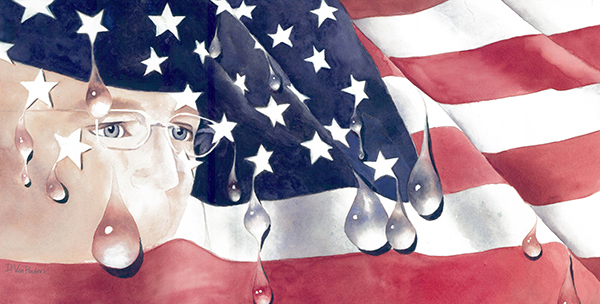This week the Trump administration bent its gaze on human rights. Be afraid. Be very afraid

This was the week the American administration bent its gaze on human rights.
Or rather, as Kenneth Roth, executive director of Human Rights Watch, noted, it chose “not to uphold all rights but to pick and choose among them”.
On Monday, July 8, Donald Trump’s Secretary of State Mike Pompeo announced the creation of a Commission on Unalienable Rights. Ostensibly, the Commission would provide “an informed review of the role of human rights in American foreign policy.” But as Mr Roth said, the creation of the Commission was a “superficially laudable step”.
In fact, Mr Pompeo (and presumably, his boss) don’t seem at all certain about human rights. Which ones should be upheld? Why? For whom? These anguished questions are hardly surprising from an administration that withdrew from the UN Human Rights Council for supposedly criticizing Israel too much.
Anyway, Mr Pompeo asked the following, as if he really, really wanted to know: “What does it mean to say or claim that something is, in fact, a human right? How do we know or how do we determine whether that claim that this or that is a human right, is it true, and therefore, ought it to be honored?”
Clearly, he’s at sea about human rights. Presumably so is his boss and the entire Trump administration.
This is puzzling.
‘Inalienable’ human rights are the subject of many international treaties. Even though the US hasn’t signed up to all of them, it has been in fundamental agreement with many of the core principles of fundamental rights.
These include reproductive freedom and the protection of minority groups. But the Trump administration wants to impose restrictive views on the entire concept of international law. This is obvious from the choice of Mary Ann Glendon, a well-known anti-abortion, anti-same-sex marriage scholar, to head the commission.
It is troubling that the Trump administration is trying to re-write human rights in a restrictive way – ie sans women’s control of their own bodies; sans special protections for some who need it.
I don’t necessarily think everyone should have espouse liberal opinions. But the path that leads towards the greatest common good is liberty. Only thus can there be the genuine pursuit of happiness.
In a way, to use the facts provided by Mr Roth of Human Rights Watch, the Trump administration is likely to take the US into a unique situation. It will neither recognise universal civil and political rights; nor economic and social rights.
Until now, the US has recognised civil and political rights (set out in its constitution) but not economic and social ones. China recognises economic and social ones but not civil and political rights.
Mr Roth writes that both sorts of rights “are detailed in widely ratified treaties — the two “covenants” that list the rights originally set out in the Universal Declaration of Human Rights. But while China, for example, has never ratified the civil and political rights treaty — the sorts of rights detailed in the US Constitution — the United States has never ratified the one on economic, social and cultural rights, which lists such rights as to food, health care and housing.”
With the Trump administration’s attempt to constrict civil and political rights, the US might be in the terrible situation of standing for nothing very much and then again, not for all, and not always.

